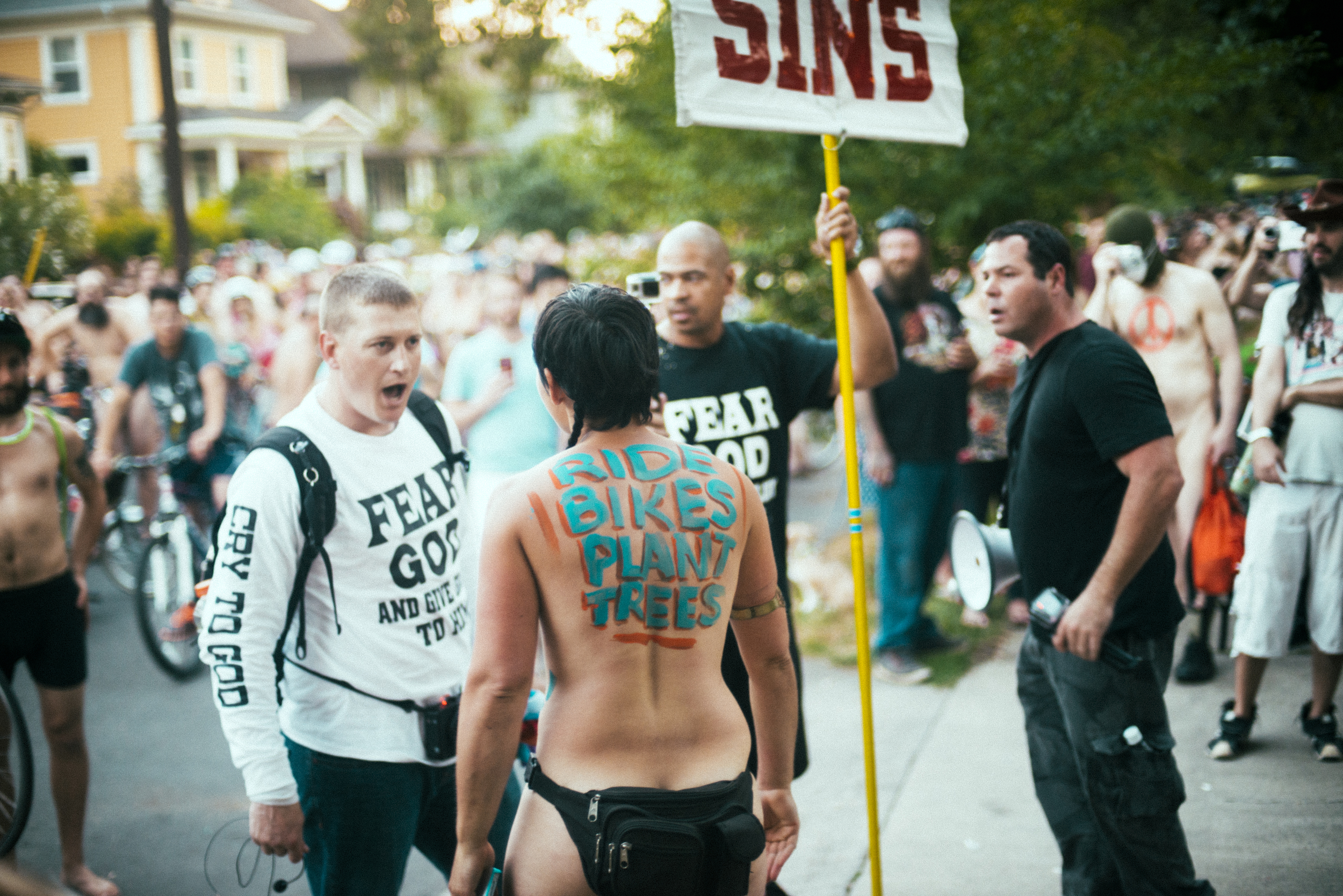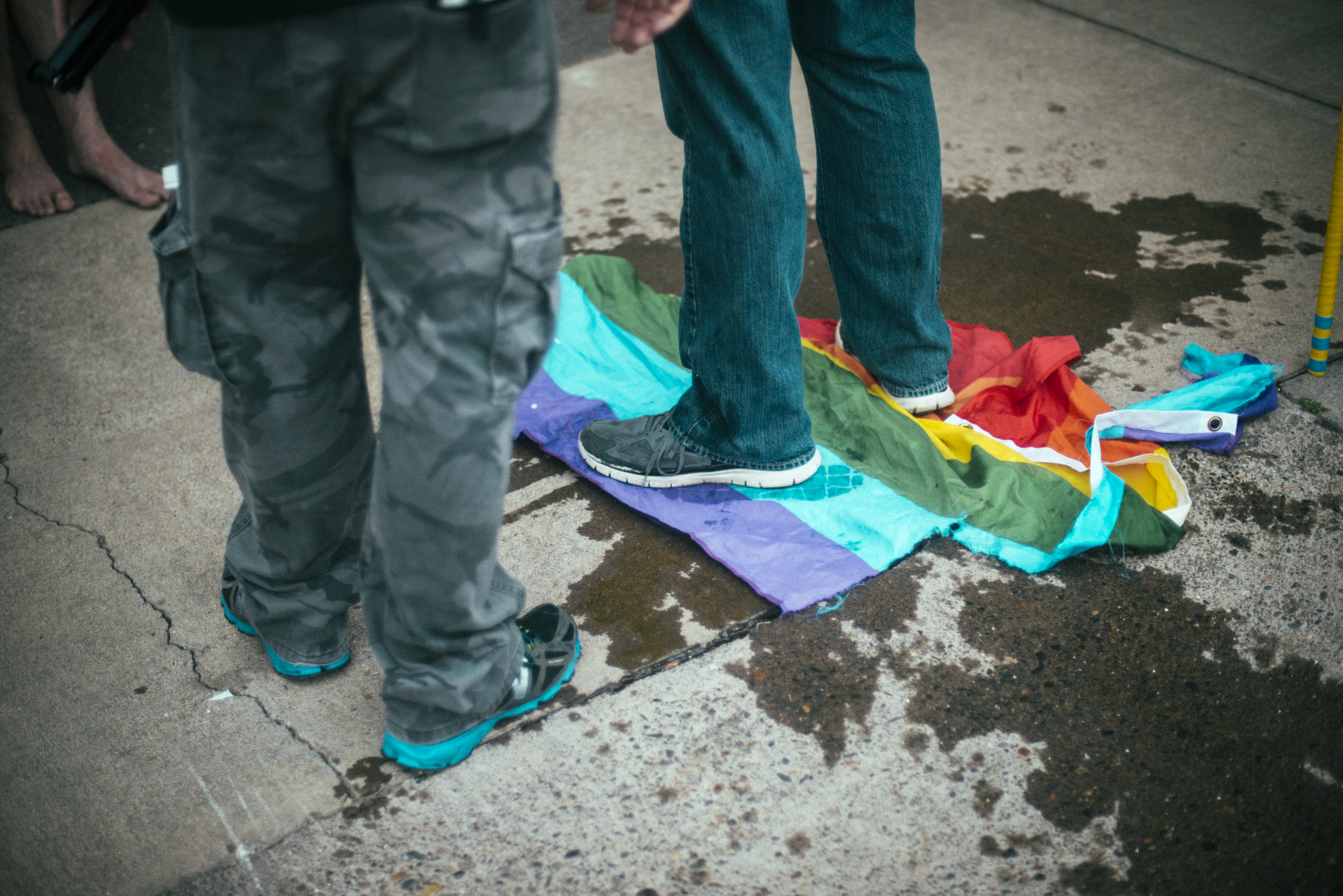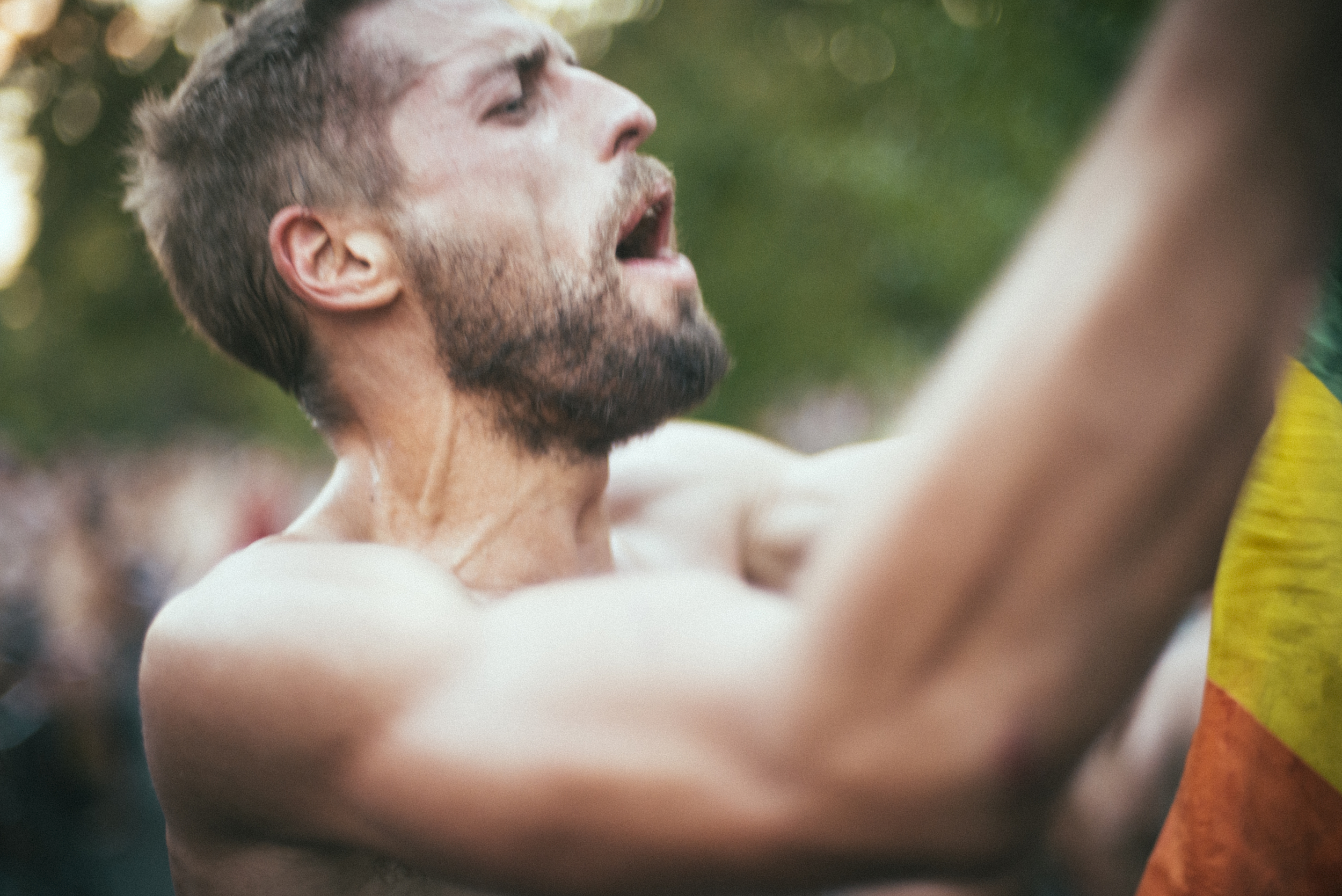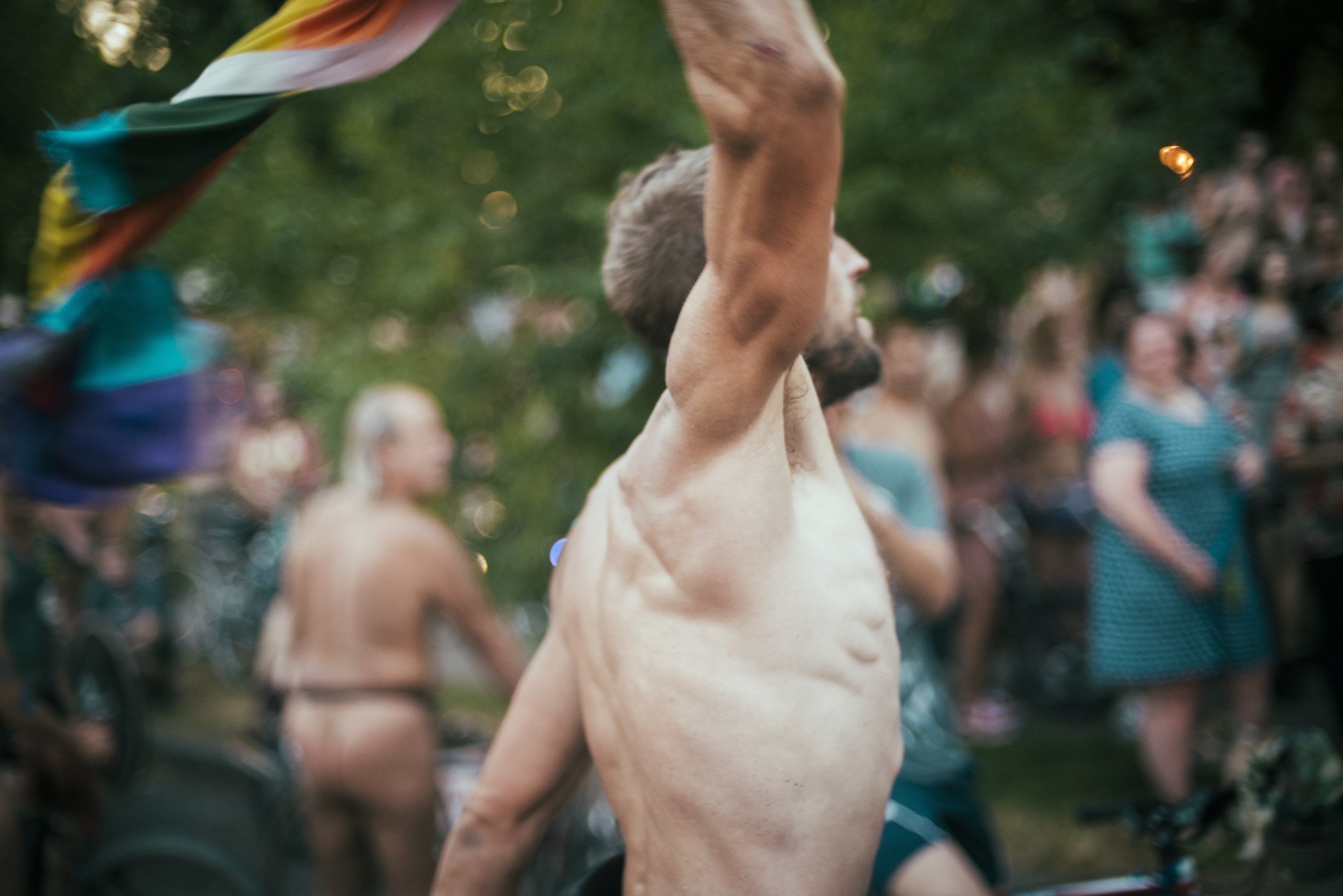I watched as the protestors stood at the edge of Colonel Summers Park, the starting point for Portland's version of the World Naked Bike Ride, megaphones to their mouths, spewing hate, and I wanted to feel disbelief. I mean, it always borders on the surreal when you come across humans so utterly consumed, so driven, so warped by hate, but it's become a common occurrence to come across this sort of thing at most large public gatherings, even in Portland. I was there when the Westboro Baptist Church showed up at the Rose Garden for a Blazer's game this past winter, and saw their children, no more than ten years old, wearing "God Hates Fags" t-shirts. When I was a student at University of Florida, it wasn't uncommon on campus to run into a bigot with a banner brandishing homophobic slurs and promising damnation. These fanatics may be societal outliers, but they're around with alarming frequency.
And the crowd at Colonel Summers seemed to know how to deal with the protestors at first. They took it in stride, with mockery and heckling and laughter. And then the pride flag came out.
And the protestors stomped and stood on that damp flag, that recent symbol of a large victory in a long and bloody and still-raging battle for basic legal equality for the LBGT community. And the tone of crowd changed instantly. Where the hate had been cartoonish and predictable before, it was now direct and unbelievably cruel and ugly. The heckling turned to shouting. The crowd pressed toward the protestors. The protestors smiled and laughed and incited and spit out more and more hate. This was what they had been waiting for the whole evening. A woman with "Ride bikes/Plant trees" painted on her bare back made an attempt to snatch the flag away, but had it wrestled away from her by the lead protestor. The crowd had retreated a bit and security had been called in, when an unclothed man on roller skates broke rank and headed straight for the back of the protestor with the flag.
They both hit the ground and security jumped in quickly, but somehow, in the midst of the melee, the man on skates emerged from the brawl holding the flag and yelling triumphantly, and skated off into the safety of the celebrating crowd. The protestors and security tried to follow, but were instantly walled off by the onlookers. The entirety of the occurrence was chill-inducing, beautiful and frightening. And confusing in a lot of ways for a lot of people.
I posted the image to Facebook a few hours after the event (it was later removed for violating Facebook's nudity restrictions), and instantly the arguments began raging in the thread beneath it. Some heaped praise on the man who captured the flag. Some scolded him for allowing himself to be foolishly bated into violence by the bigots. Some found rationally-questionable ways to tie this event into a larger narrative on patriotism, nudity, flag sanctity, and the moral decay of a once-great nation. A lot of people were talking, but very few were attempting to have even a mildly productive dialogue about the ethical complexities of such an incident.
There are no easy answers, and in events like this, even the right questions can be hard to identify. Almost everyone agrees that protestors who use hate-riddled rhetoric and provocative tactics are reprehensible. But when, if ever, is it permissible to insert physical force into the mix, even if against an opponent who champions bigotry and tramples symbols of freedom and equality? My entire life I've considered myself a proponent of non-violent protest (but I was also born a heterosexual, white male in a middle class family, so things have been pretty predictably easy for me as far as basic societal freedoms and rights thus far in my life), but when I saw the man on roller skates emerge from the scuffle with the flag, I instinctively felt a sense of pride and justice. And over the past couple of days, I've been grappling with just what that dichotomy means to me ethically.
The existence and moral rightness of gay rights in this country are now a simple and beautiful truth. But how we choose to move forward as a nation, how we choose to deal with and eventually phase out such intolerant and hateful bigotry, requires an intelligent, open dialogue between all of us. And it's high time we started that dialogue.




